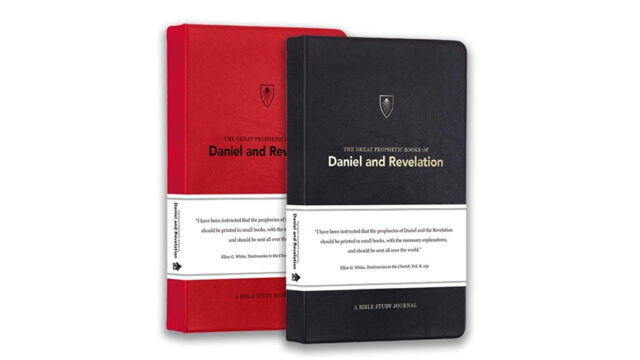On the miracle of unity

Jesus is being accused of working together with the devil.
The One who withstood the tempter in the desert following His baptism and repelled him with a decisive “Away from me, Satan!” (Matt. 4:10)1—the One who came “to destroy the devil’s work” (1 John 3:8)—is implicated as collaborating with the “prince of demons.” He, who sternly commanded impure spirits to “be quiet!” and “come out!” (Mark 1:25), is charged by the crowd as being “demon-possessed” Himself (cf. John 7:10; 10:20).
What Is He Not Telling Us?
After Jesus heals “a demon-possessed man who was blind and mute” (Matt. 12:22) the crowd watching all this draws different conclusions (cf. verses 22–30). One group calls Him the promised Messiah, the other a spiritualist: “But when the Pharisees heard this, they said, ‘It is only by Beelzebul, the prince of demons, that this fellow drives out demons’” (verse 24).
This attempt to discredit Jesus is a frontal attack on His integrity: Are you really who you claim to be? Don’t you have a hidden agenda, or worse, a dark secret? Aren’t you operating covertly in the name of Satan?
Associating Jesus with Beelzebul was a multiple insult: Beelzebub (from Hebrew Ba’al Zebûb) can be translated “Lord of the flies” or “Lord of the dunghill,” that is, the one who gathers followers like flies.2
Jesus sees an opportunity to share an important spiritual truth about the kingdom of God at this moment: “Every kingdom divided against itself will be ruined, and every city or household divided against itself will not stand. If Satan drives out Satan, he is divided against himself. How then can his kingdom stand? And if I drive out demons by Beelzebul, by whom do your people drive them out? So then, they will be your judges. But if it is by the Spirit of God that I drive out demons, then the kingdom of God has come upon you” (verses 25-28).
Jesus makes a surprising claim: Both the Spirit of God and Satan and his followers are united in their missions—albeit diametrically opposed to each other. Satan seeks to divide and conquer—God seeks to set free and unite. And humans? They can choose which side to join.
What Manner of Spirit
The Bible describes a mind-set that seeks to divide people into good and bad, right and wrong—where one turns up, by default, on the “right” side. It’s a game dear to human nature in which we all excel. Although the issues to be right about may vary over time, the spirit remains the same. In German we call a person with this attitude Rechthaber—or someone who thinks and claims to be always right. The Pharisees added a spiritual dimension to it: we are good, you are evil; we have God on our side, therefore you must be against God—of the devil or a demon yourself.
Jesus warned His disciples to “watch out for the yeast of the Pharisees” (Mark 8:15). This toxic ideological “raising agent” eventually leads to hypocrisy. Why? Simply because it’s a mind-set that practices what it condemns, while at the same time pretending that it doesn’t. The word “Pharisee,” Hebrew perushim, comes from poresh, which means “to separate oneself from.” The Pharisee is, in essence, someone who distances and detaches himself from others in the name of religion.
But however true any analysis of the Pharisaic mind may be, the most important spiritual takeaway is this: We all have an inner Pharisee going about his business, if we let him.
A Kingdom Gathered
The perushim mind-set excludes—Jesus includes. The perushim mind-set separates in the name of religion—Jesus gathers, in the name of God: “I have other sheep that are not of this sheep pen. I must bring them also. They too will listen to my voice, and there shall be one flock and one shepherd” (John 10:16). The good Shepherd gathers His sheep from all over with one goal in mind: to bring back together what belonged together in the first place: “I pray . . . that all of them [believers] may be one, Father, just as you are in me and I am in you. . . .
I in them and you in me—so that they may be brought to complete unity. . . . Father, I want those you have given me to be with me where I am” (John 17:20-24). The opposite is true too: Whoever does not gather with Jesus scatters (Matt. 12:30).
The Miracle of Being One
To be clear, this “complete unity” Jesus was praying for is a spiritual miracle that can’t be reached through any human “shortcut.” It’s the result of a longer relational process the Bible depicts as the way of love, “which binds . . . all together in perfect unity” (Col. 3:13). Unity is both a spirit and the result of a transforming process. It’s an attitude that seeks connection and understanding.
The Spirit of ONE includes these elements:
O—ourselves (inner healing and restoration of body, mind, and soul)
N—neighbor (healing of relationships)
E—enemy (eventually overcoming any trigger that jeopardizes true unity)
All of this is based on the spirit-led miracle of forgiveness. Paul reminds Christians: “Bear with each other and forgive one another if any of you has a grievance against someone. Forgive as the Lord forgave you” (verse 14). Forgiveness is just as great a miracle as is the creation of the world, the transformation of a person, or the resurrection from the dead.
The prophet Ezekiel was shown in vision a valley filled with scattered bones. When asked by God: “Son of man, can these bones live?” he didn’t know the answer, nor did he dare to believe this could happen (Eze. 37:3). Would we have? Probably not. Can the “dry bones” of church doctrine and policies come to life? Church policies and teachings have their appropriate place, yet they can cover the bones only with “tendons and flesh” and even “skin”; they can’t breathe the breath of life into the body (cf. verse 8). “This is what the Sovereign Lord says to these bones: I will make breath enter you, and you will come to life” (verse 5).
Do we still believe that unity can be restored? We do have a choice: we can be peacemakers for the Prince of Peace, or we can allow our “inner Pharisee” to tear this world further apart.
“Our bones are dried up and our hope is gone; we are cut off” (Eze. 37:11). “Come, breath, from the four winds and breathe into these slain, that they may live” (verse 9).
1 Bible texts in this article are from the New International Version.
2 According to others it most likely means “Baal the prince.” Ba’al Zebub is mentioned in the Old Testament as the Philistine God of Ekron. Cf. Manfred Lurker, The Routledge Dictionary of Gods and Goddesses, Devils and Demons (London: Routledge, 1987), p. 31.








